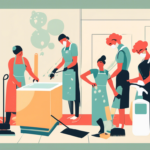Are you tired of breathing stale air or watching your energy bills skyrocket? If so, it’s time to focus on one of the most critical components of your home: the HVAC system. Keeping your heating, ventilation, and air conditioning systems clean isn’t just about comfort; it’s essential for your health and wallet. A clean HVAC system ensures that you’re not only enjoying fresh, breathable air but also operating efficiently, which can lead to significant savings in energy costs.
Many homeowners overlook the importance of HVAC cleaning, assuming that a simple filter change is enough. However, regular maintenance goes beyond the basics. This article will unlock the secrets to a pristine HVAC system with a step-by-step cleaning guide that covers everything from DIY methods to when it’s best to call in the professionals. You’ll learn how cleaning your HVAC can boost your indoor air quality, save you money, and prolong the lifespan of your system.
With our ultimate checklist and safety tips, you’ll avoid common mistakes and discover seasonal strategies to prepare your HVAC for both summer and winter. By the end of this article, you’ll be equipped with all the knowledge you need to maintain your HVAC system effectively and enjoy the myriad benefits that come with it.
Unlock the Secrets to a Pristine HVAC System: Step-by-Step Cleaning Guide
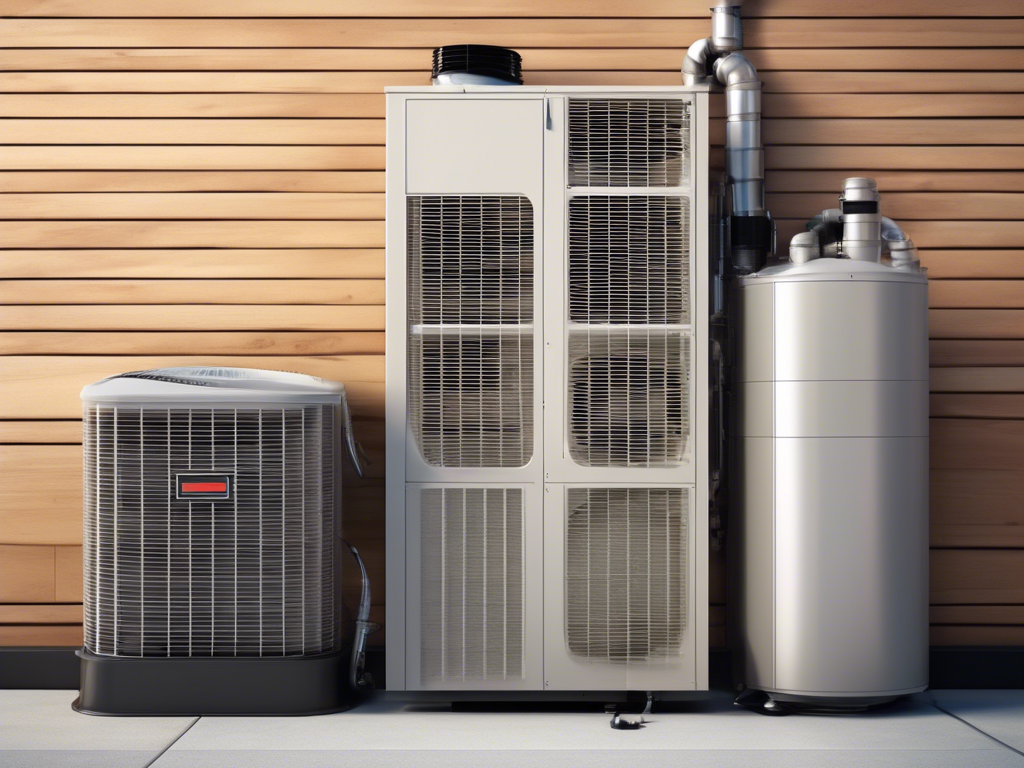
Understanding the Importance of Cleaning Your HVAC System
Cleaning your HVAC system is crucial for maintaining optimal air quality and efficiency. Over time, dust, dirt, and allergens accumulate in the ducts and filters, leading to poor air circulation and increased energy bills 💸. By regularly cleaning your HVAC system, you can enhance its performance, extend its lifespan, and ensure that you’re breathing clean air indoors.
Gathering Necessary Tools and Supplies
Before diving into the cleaning process, it’s important to gather the right tools and supplies 🧰. Here’s a checklist to get you started:
– **Vacuum cleaner** with a hose attachment
– **Mild detergent** or specialized HVAC cleaning solution
– **Soft-bristle brush**
– **Microfiber cloths**
– **Protective gear** such as gloves and masks
Having these items ready will streamline the cleaning process and make it more efficient!
Step-by-Step Cleaning Process for Your HVAC System
Follow these essential steps to ensure thorough cleaning of your HVAC system:
1. **Turn Off Power**: Safety first! Always switch off the power to your HVAC unit before beginning any cleaning tasks.
2. **Clean or Replace Filters**: Check your filters for dirt and debris. If they’re reusable, wash them according to the manufacturer’s instructions; if not, replace them with new ones. A dirty filter can significantly affect airflow and efficiency.
3. **Dust the Ducts**: Use a soft-bristle brush to gently remove dust from accessible ductwork. Be cautious not to dislodge any debris that could be sent further down the system.
4. **Clean the Coils and Fins**: For both the evaporator and condenser coils, use a vacuum and some mild detergent. This helps restore maximum heat exchange efficiency.
By following these steps, you’re sure to boost the performance of your HVAC system! 🌟
Regular Maintenance Tips for Long-Lasting Cleanliness
To keep your HVAC system in top shape, consider implementing these maintenance tips:
– Schedule professional cleanings at least once a year.
– Inspect and clean filters monthly during peak usage months.
– Keep surrounding areas clear of debris to avoid blockage.
– Utilize a dehumidifier to reduce potential mold growth within your system.
Regular maintenance not only supports the cleanliness of your system but also contributes to its overall efficiency and durability. 🔧
Signs Your HVAC System Needs Immediate Cleaning
It’s essential to recognize when your HVAC system requires urgent cleaning. Look out for these signs:
– Unusual smells coming from the vents
– Increased energy bills without any apparent reason
– Reduced airflow through your HVAC vents
– Frequent allergies or respiratory issues among occupants
If you notice any of these indicators, it may be time to perform a thorough cleaning or contact a professional technician. Ensuring your HVAC system is well-maintained is key to both comfort and health! 🌬️
Breathe Easy: How Regular HVAC Cleaning Boosts Indoor Air Quality
Understanding Indoor Air Quality and Its Importance
The air inside your home can be more polluted than outdoor air, often due to the buildup of dust, allergens, and irritants in your HVAC system 🏠. When these contaminants circulate through your home, they can lead to various health issues, including respiratory problems and allergies. Regular cleaning of your HVAC system not only enhances efficiency but significantly improves indoor air quality, allowing you and your family to breathe easy!
Key Benefits of Regular HVAC Cleaning
Engaging in routine HVAC cleaning comes with a multitude of benefits that go beyond just cleanliness. Here are some key advantages:
– **Reduces Allergens**: Removing accumulated dust and pollen helps lower allergy symptoms.
– **Eliminates Odors**: A clean system prevents musty and unpleasant smells from permeating your home.
– **Prevents Mold Growth**: Moist environments can promote mold; regular cleaning inhibits this growth.
– **Improves Energy Efficiency**: Clean systems operate more efficiently, potentially lowering your energy bills 💡.
Emphasizing these benefits can motivate homeowners to prioritize their HVAC maintenance!
Essential Steps for Effective HVAC Cleaning
To ensure effective cleaning of your HVAC system, follow these essential steps:
1. **Inspect and Clean the Filters**: Start with filters—clean or replace them regularly as dirty filters hinder airflow.
2. **Vacuum Ducts**: Using a vacuum with a brush attachment helps remove dust and debris from the ducts.
3. **Wash Coils**: Ensure coils are rinsed and free of grime for optimal performance.
4. **Check the Drainage**: Clear any blockages in the drainage system to prevent excess moisture buildup.
By maintaining each component, you’re safeguarding both the system’s performance and your indoor air quality 🌬️.
How Often Should You Clean Your HVAC System?
Determining a cleaning schedule can be crucial for maintaining a healthy environment. Here are some guidelines:
– **Every 3-6 months**: Change or clean filters.
– **Annually**: Schedule a professional cleaning to thoroughly inspect and clean the entire system.
– **Seasonally before peak use**: Clean the system before summer or winter to prepare for increased usage.
Keeping this schedule in mind ensures that your HVAC system remains efficient and healthy throughout the year! 📅
Recognizing When Your HVAC Needs Cleaning
It’s crucial to be aware of when your HVAC system requires immediate attention. Some common indicators include:
– Visible dust discharge from vents
– Frequent allergy flare-ups among occupants
– Unusual spikes in energy costs
– Noticeable changes in airflow strength
If you experience any of these signs, it’s essential to take action quickly to maintain good air quality and comfort in your home, ensuring you can live and breathe better! 🌟
DIY vs. Professional: Choosing the Best Method for HVAC System Cleaning
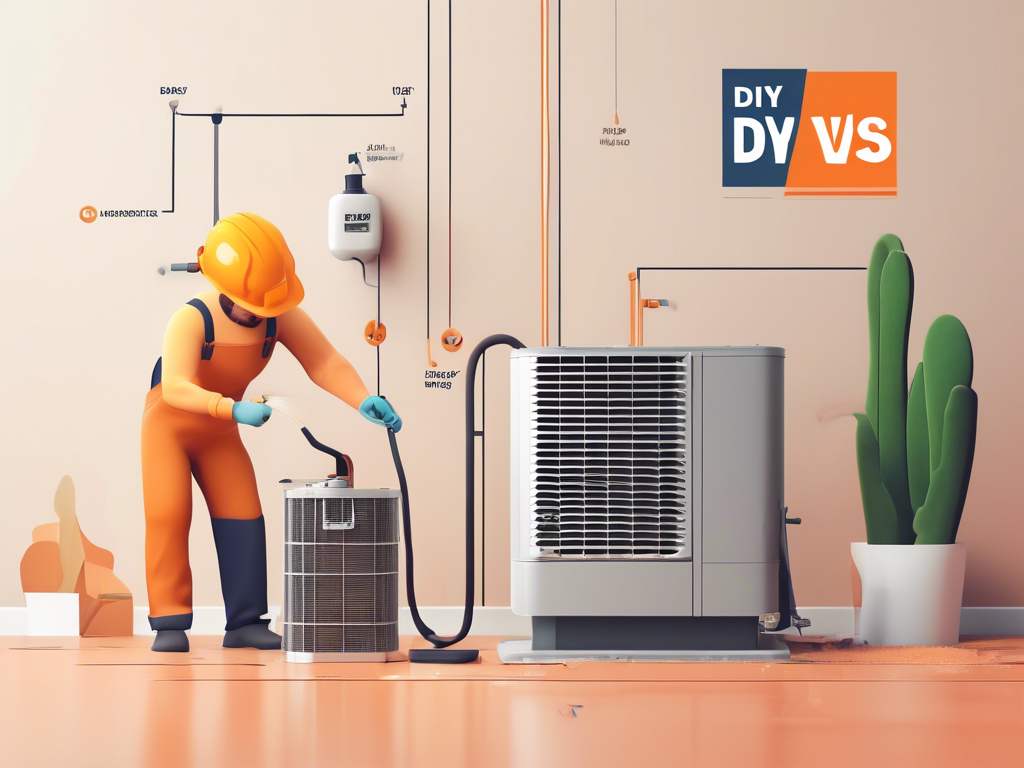
Understanding the DIY Approach
When it comes to cleaning your HVAC system, many homeowners consider doing it themselves as a cost-effective option 💰. Performing basic maintenance tasks, like changing filters and cleaning accessible ducts, can be manageable. Here are some benefits of going the DIY route:
– **Cost Savings**: You save money by not hiring professionals.
– **Flexibility**: Clean at your convenience without waiting for an appointment.
– **Control Over the Process**: You know exactly what is being done and how.
However, it’s essential to recognize the limitations of DIY methods, especially regarding complex aspects like deep duct cleaning and coil maintenance, which may require more specialized knowledge and tools.
The Benefits of Hiring Professionals
While DIY cleaning might seem attractive, hiring professional services can provide several advantages that ensure thorough cleaning of your HVAC system 🧼. Here’s why you might want to choose a pro:
– **Expertise and Experience**: Professionals have the training to tackle any issues efficiently.
– **Specialized Equipment**: Access to advanced tools and technologies that are not typically available to homeowners.
– **Comprehensive Cleaning**: They can clean hard-to-reach areas and perform thorough inspections for potential issues.
Investing in professional cleaning can lead to more effective maintenance and longevity of your HVAC system 🏅.
Evaluating Your HVAC Cleaning Needs
Before deciding on whether to go DIY or hire a professional, assess your specific needs based on these factors:
1. **Age of Your System**: Older units may require more extensive care.
2. **Previous Cleaning History**: If it has been a while since your last professional cleaning, it may be time for expert intervention.
3. **Health Concerns**: If anyone in the household suffers from allergies or respiratory issues, professional cleaning can be beneficial.
Assessing these factors will help determine the best approach to HVAC cleaning for your situation.
Cost Considerations: DIY vs. Professional
When considering the right method for cleaning your HVAC system, cost plays a significant role. Here’s a breakdown of potential costs:
– **DIY Costs**: Primarily consist of supplies, such as filters and cleaning agents, which can range from $50 to $150 depending on what you need.
– **Professional Costs**: Typically range from $100 to $400, depending on the service complexity and your home’s size.
Consider the potential long-term savings and efficiency that a well-maintained HVAC system offers when weighing these options 📊.
Making the Final Decision
Ultimately, your choice between DIY and professional cleaning should align with your comfort level, budget, and the condition of your HVAC system 💡. If you’re confident in handling basic tasks and your system is relatively simple, DIY may suffice. However, if you’re dealing with older systems or persistent quality issues, investing in professional services often leads to peace of mind and improved performance.
In summary, evaluate your own capabilities, system requirements, and budget to make the best decision for maintaining a clean and efficient HVAC system! 🛠️
The Ultimate Checklist for Cleaning Your HVAC: Don’t Miss These Key Areas!
Inspect and Clean Air Filters
One of the most critical tasks in cleaning your HVAC system is inspecting and cleaning or replacing air filters. Dirty filters can significantly hinder airflow, leading to reduced efficiency and poor indoor air quality. Aim to check your filters every month, especially during peak usage seasons. If they appear dirty, either clean them (if washable) or replace them with new ones for optimal performance. 🧼
Dusting the Ductwork
Another essential area to focus on during your HVAC cleaning process is the ductwork. Dust and debris tend to accumulate in the ducts, which can affect air quality and system efficiency. Use a soft-bristle brush or an appropriate vacuum attachment to gently remove dust from accessible sections of your ducts. Pay attention to any visible buildup or clogs that could be obstructing airflow. ✨
Cleaning the Condenser and Evaporator Coils
The coils in your HVAC system play a vital role in cooling and heating your home. Over time, grime and dirt can build up on these coils, reducing their efficiency. Gently clean both the condenser and evaporator coils with a specialized cleaner or a mixture of water and mild detergent. Regularly maintaining these components ensures better performance and lower energy costs! 🌡️
Checking and Clearing the Drain Line
A clogged drain line can lead to water damage and mold growth in your HVAC system. Periodically check the drain line for blockages and use a wet-dry vacuum to clear any obstructions. You may also flush the line with a mixture of vinegar and water to help keep it flowing freely. A clear drainage system prevents unnecessary issues and prolongs the lifespan of your equipment. 💧
Examining the Blower Motor and Wheel
Don’t overlook the blower motor and wheel when cleaning your HVAC. The blower is responsible for distributing air throughout your home, so any buildup of dust can impede its function. Ensure you turn off the power, then carefully clean the blower wheel with a soft cloth or brush to remove any accumulated dust. Regular maintenance here can improve airflow and efficiency! 🔄
Scheduling Professional Inspections
While DIY cleaning is essential, it’s also crucial to schedule professional inspections for your HVAC system at least once a year. Trained technicians can provide a thorough cleaning of hard-to-reach areas and identify potential issues before they become significant problems. Investing in regular professional maintenance not only helps keep your system clean but also enhances its overall reliability and longevity. 📅
By following this ultimate checklist, you can ensure that you cover all key areas when cleaning your HVAC system, helping to maintain optimal performance and air quality in your home! 🌬️
Save Money on Energy Bills by Keeping Your HVAC System Clean
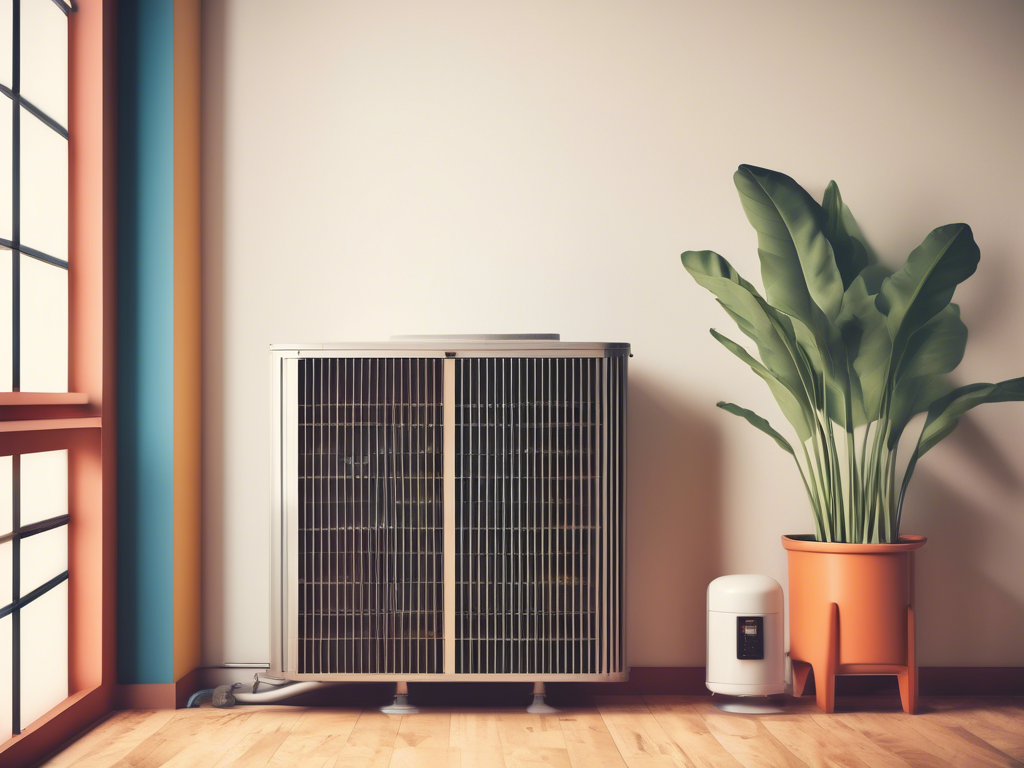
Understanding the Link Between HVAC Cleaning and Energy Efficiency
One of the most significant ways to save money on energy bills is by ensuring that your HVAC system is clean and well-maintained 🌍. A dirty and neglected system forces your HVAC unit to work harder to heat or cool your home, leading to increased energy consumption and higher utility costs. Regular cleaning of your HVAC components—such as filters, coils, and ducts—improves airflow and system efficiency, allowing your HVAC to operate at optimal levels.
The Role of Clean Filters in Reducing Energy Costs
A vital step in cleaning your HVAC system is maintaining clean air filters. When filters are clogged with dust and debris, they create blockages that restrict airflow, forcing your system to work inefficiently 🚫. Here’s how clean filters help you save money:
– **Improved Airflow**: Ensures efficient operation and reduces the workload on your system.
– **Lower Energy Usage**: A well-functioning system consumes less energy, translating to lower bills.
– **Extended Lifespan**: Regular filter changes can prolong the life of your HVAC system, saving you from expensive replacements.
Aim to check and replace or clean your filters every one to three months for optimal performance! 🔄
Cleaning Coils for Optimal Performance
The evaporator and condenser coils in your HVAC system play crucial roles in cooling and heating. Over time, these coils can accumulate dirt, which significantly impacts their ability to transfer heat effectively ⚡. Regularly cleaning the coils helps maintain:
– **Energy Efficiency**: Clean coils operate more efficiently, reducing energy usage.
– **Comfort**: A well-maintained system provides consistent temperatures throughout your home.
Consider scheduling a cleaning of your coils at least once a year to ensure they remain efficient and effective!
Preventing System Strain with Duct Cleaning
Dirty ducts can lead to a host of problems, including poor air quality and decreased efficiency 🌬️. When dust and debris build up in the ductwork, it not only affects airflow but also causes your HVAC system to strain harder to circulate air. Regular cleaning of ducts can prevent:
– **Increased Energy Consumption**: By maintaining clear ducts, your system won’t have to work as hard.
– **Dust Buildup in Home**: Reduced amounts of dust circulating means cleaner indoor air.
Consider having your ducts professionally cleaned every few years to ensure optimal airflow and efficiency!
Regular Maintenance Leads to Long-Term Savings
Investing time in regular cleaning of your HVAC system can lead to substantial long-term savings on your energy bills 💰. By following a maintenance checklist, you can prevent costly repairs and inefficiencies. Here’s a quick list of maintenance tasks to consider:
– Clean or replace filters monthly.
– Schedule annual professional cleanings.
– Inspect and clean coils and ducts at least once a year.
– Keep the area around your outdoor unit free of debris.
By adhering to these practices, you’re setting yourself up for a cleaner, more efficient system that ultimately saves you money! 📅
Safety First: Essential Precautions When Cleaning Your HVAC System
Turn Off the Power
Before you begin any cleaning of your HVAC system, the very first step is to ensure safety by turning off the power. This includes switching off the thermostat and unplugging the unit if applicable. This precaution minimizes the risk of electrical shock and ensures that no accidental starts occur while you’re cleaning. Safety should always come first! ⚡️
Wear Protective Gear
When engaging in HVAC cleaning, it’s essential to wear appropriate protective gear. This includes:
– ** gloves**: Protect your hands from dirt and chemicals.
– **Dust masks**: Safeguard against inhaling dust and allergens.
– **Safety goggles**: Shield your eyes from debris and cleaning agents.
Wearing this gear makes the cleaning process safer and more comfortable, allowing you to focus on getting the job done effectively! 🧤😷
Use the Right Cleaning Products
Choosing the right cleaning products is crucial when working on your HVAC system. Avoid harsh chemicals that can damage components or leave harmful residues. Instead, opt for:
– **Mild detergents**: Safe for cleaning surfaces without causing damage.
– **Specialized HVAC cleaning solutions**: Designed specifically for effectiveness and safety.
Using the correct products ensures that your cleaning is both thorough and safe for your system. 🧼🔍
Be Careful with Ductwork
While cleaning your HVAC system, pay special attention to the ductwork. It’s easy to inadvertently damage ducts if you’re too aggressive while cleaning. To prevent this:
– **Use a gentle touch** with brushes and vacuums.
– **Avoid sharp tools** that could puncture or bend the ducts.
Maintaining the integrity of your ductwork is vital for the efficiency and performance of your heating and cooling systems! 🌬️
Follow Manufacturer Guidelines
Each HVAC system is unique, so it’s important to follow the manufacturer’s guidelines for maintenance and cleaning. This may include specific instructions for:
– Cleaning intervals
– Recommended cleaning methods
– Areas needing special attention
By adhering to these guidelines, you ensure that your cleaning efforts are effective and won’t void the warranty of your unit. 📘✅
Consider Professional Help for Complex Tasks
While many tasks can be handled as DIY, some aspects of HVAC cleaning may require professional assistance. If you encounter:
– **Deep duct cleaning needs**
– **Issues with mold or pests**
– **Extensive repairs**
It’s wise to call in trained professionals who have the expertise and tools to handle the job safely and effectively. This not only protects your system but also ensures your home remains safe and healthy! 🏅🙌
Common Mistakes to Avoid When Cleaning Your HVAC Equipment
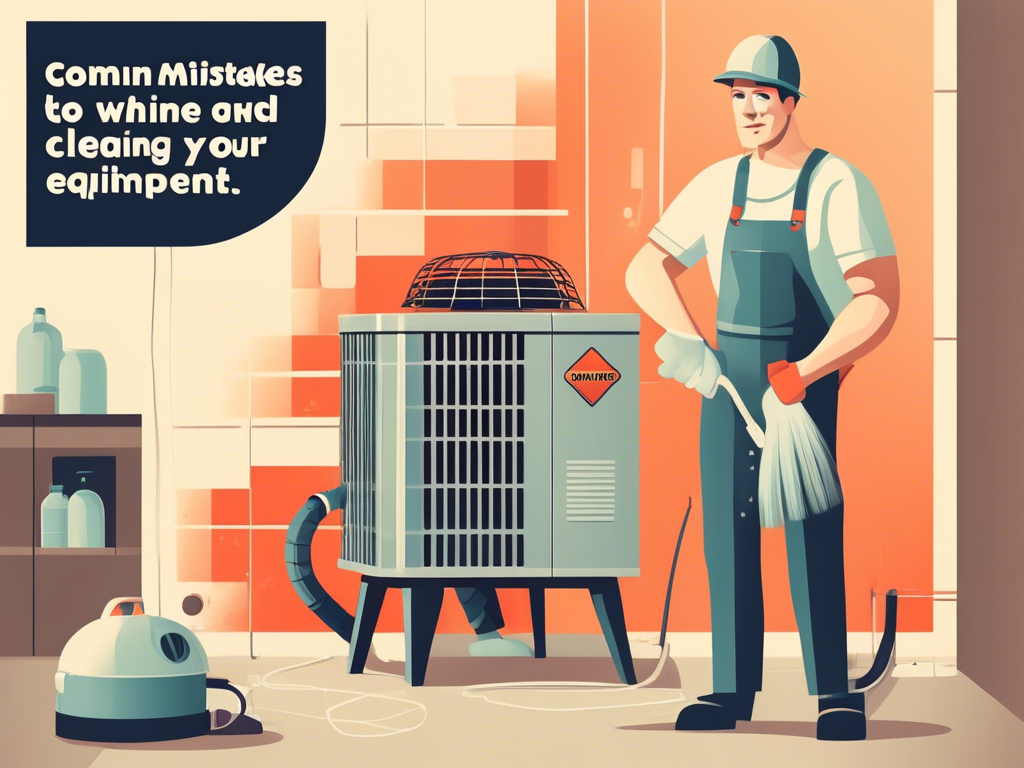
Neglecting Regular Maintenance
One of the most common mistakes homeowners make is neglecting routine maintenance. Regularly cleaning your HVAC system is essential for ensuring it operates efficiently and effectively. Skipping scheduled cleanings can lead to dust buildup, reduced airflow, and increased energy costs. Aim to perform basic checks and cleanings at least every 3-6 months to keep your system in top shape! 💻
Using Improper Cleaning Techniques
Using the wrong techniques or tools can cause more harm than good when cleaning your HVAC equipment. For instance, using a stiff brush or abrasive cleaners can damage sensitive components like coils and fins. Instead, opt for soft-bristle brushes and approved HVAC cleaning solutions. Always refer to your manufacturer’s guidelines for recommended cleaning methods to avoid damaging your system! 🔧
Overlooking the Importance of Filters
Filters play a crucial role in maintaining air quality and system efficiency. Failing to **clean or replace filters** regularly can significantly impact airflow and lead to excess strain on your unit. Make it a habit to check filters monthly, and clean or replace them as necessary. Clean filters not only improve performance but also enhance indoor air quality! 🌬️
Ignoring Signs of Trouble
Ignoring warning signs can result in larger issues down the line. If you notice unusual smells, poor airflow, or increased energy bills, these may indicate that your HVAC system needs immediate attention. Addressing these problems promptly can prevent costly repairs and ensure your system functions optimally. Keep an eye out for these signs, and act quickly to maintain a healthy home environment! 🏠
Failing to Schedule Professional Cleanings
While DIY efforts can help maintain your HVAC equipment, professional cleanings are also vital. Many homeowners underestimate the benefits of hiring an HVAC technician for a thorough deep clean. Professionals have specialized tools and expertise to tackle hard-to-reach areas and provide a comprehensive inspection of your system. Aim to schedule a professional cleaning at least once a year to keep everything running smoothly! 🛠️
Seasonal Cleaning Tips: Preparing Your HVAC for Summer and Winter
Before Summer: Essential Prepping for Your HVAC System ☀️
As the temperature rises, it’s important to prepare your HVAC system for the heat of summer. Here are some essential steps to ensure your system runs smoothly:
– **Check Air Filters**: Replace or clean filters to promote better airflow and energy efficiency.
– **Inspect Ducts for Leaks**: Seal any visible leaks in ductwork to maintain consistent cooling.
– **Clean the Outdoor Unit**: Remove debris like leaves or dirt around your outdoor condenser unit to optimize airflow.
– **Test the Thermostat**: Make sure your thermostat is functioning properly by testing it before peak usage.
By following these cleaning HVAC tips, you can boost your system’s performance and keep your home comfortably cool all summer long! ❄️
Before Winter: Ensuring Your HVAC is Ready for Cold Weather ❄️
Winter demands different preparations for your HVAC system. To prevent breakdowns and ensure efficiency, consider these tips:
– **Inspect and Clean Heat Exchangers**: Check for buildup that could affect heating efficiency.
– **Verify the Oil/Fuel Supply**: If applicable, ensure you have enough fuel for heating throughout the winter months.
– **Remove Outdoor Debris**: Clear any snow or ice surrounding the outdoor unit to avoid potential restrictions.
– **Schedule a Professional Inspection**: Have a technician check your system to catch any issues before they worsen.
By taking these measures, you’re setting your HVAC system up for success this winter! 🌨️
Seasonal Filter Management: The Key to Efficiency 🔄
One of the most crucial aspects of seasonal HVAC preparation is managing your air filters. Here’s how to keep them in check:
– **Monthly Checks**: Inspect filters every month, particularly during peak usage seasons.
– **Replace as Needed**: Depending on usage and filter type, replace filters every 1-3 months to maintain optimal airflow.
– **Use High-Efficiency Filters**: Consider using HEPA filters for better indoor air quality, especially if allergies are a concern.
Regularly maintaining your filters not only improves your HVAC cleaning routine but also contributes to a healthier indoor environment! 🏡
Identifying Seasonal Issues Early 🔍
It’s essential to keep an eye out for signs that indicate your HVAC system may need immediate attention, especially as seasons change. Watch for:
– **Unusual Noises**: Any strange sounds can indicate mechanical problems.
– **Inconsistent Temperatures**: Uneven heating or cooling points to inefficiencies.
– **Increased Energy Bills**: A sudden spike could signal a system struggling to perform.
If you notice any of these issues, take action promptly to avoid costly repairs down the line! 🚧
Annual Maintenance: Don’t Skip This Crucial Step 📅
Beyond seasonal preparations, scheduling annual professional maintenance should be a priority. This entails:
– **Thorough Inspections**: Technicians will check parts that are hard to access, ensuring everything functions efficiently.
– **Deep Cleaning**: A comprehensive cleaning of coils, ducts, and other components prolongs the system’s lifespan.
– **System Optimization**: Experts can make adjustments that enhance efficiency and reduce energy costs.
This investment in annual maintenance is essential for keeping your HVAC system running optimally through every season! 🌟
The Benefits of Regular HVAC Maintenance: More Than Just Cleaning
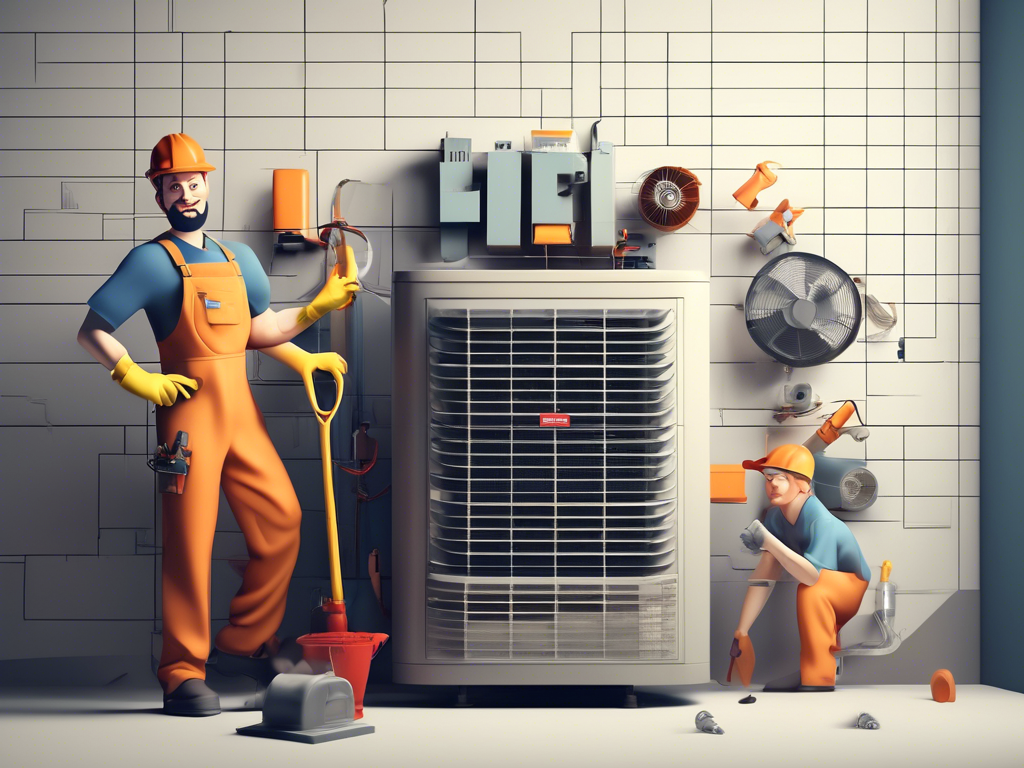
A Longer Lifespan for Your HVAC System
Regular HVAC maintenance ensures that your system operates smoothly, helping to extend its lifespan significantly. By scheduling routine cleanings and inspections, you’re addressing potential issues before they escalate into costly repairs. A well-maintained system can last up to 15-20 years, which is much longer than one that suffers from neglect! 🏠
Improved Energy Efficiency
Keeping your HVAC system clean and well-maintained has direct implications for energy efficiency. When components like filters, coils, and ducts are regularly cleaned, they operate more efficiently, ultimately reducing energy consumption. This not only leads to lower monthly bills but also decreases your environmental footprint 🌍.
Enhanced Indoor Air Quality
One of the most crucial benefits of regular HVAC cleaning and maintenance is improved indoor air quality. Dust, allergens, and pollutants can build up in your system, circulating harmful particles throughout your home. Routine cleaning reduces these contaminants, allowing you and your family to breathe cleaner, fresher air—essential for health and comfort! 🌬️
Reduced Repair Costs
Performing regular maintenance on your HVAC system can save you a considerable amount in repair costs over time. By catching small issues early through routine checks, you prevent them from becoming larger, more expensive problems. This proactive approach keeps your system running efficiently and saves you from sudden financial burdens ⚙️.
Increased Comfort Levels
When your HVAC system is clean and well-maintained, it works more effectively to regulate indoor temperatures. This means more consistent heating and cooling throughout your home, leading to increased comfort year-round. With fewer fluctuations, your living space becomes a cozy sanctuary regardless of the season ❄️☀️.
Peace of Mind
Knowing that your HVAC system is clean and well-maintained provides peace of mind. You can rest easy knowing that your unit is operating efficiently and safely, minimizing worries about breakdowns or expensive repairs. Regular maintenance fosters confidence that your home will remain comfortable, regardless of external weather conditions. 💪
Summing up
In conclusion, maintaining a clean HVAC system is not just a luxury; it’s a necessity for every homeowner who values health, comfort, and efficiency. We’ve explored various aspects of cleaning your HVAC, from the essential step-by-step cleaning guide to understanding the impact of regular maintenance on indoor air quality and energy savings. Remember, a clean system not only enhances air quality but also reduces wear and tear, preventing costly repairs down the line.
Moreover, embracing a proactive approach by incorporating seasonal cleaning tips and checking off our ultimate checklist can make all the difference. Whether you choose to tackle the job yourself or enlist professional help, prioritizing your HVAC cleaning is an investment in your home’s future. Avoid the pitfalls of neglect, and don’t underestimate the importance of proper safety precautions to protect yourself during the process.
As we move forward, let this guide inspire you to take action—your lungs and your wallet will thank you! So roll up your sleeves, grab your tools, and start giving your HVAC the attention it deserves. After all, a clean HVAC system leads to a happier, healthier home.


